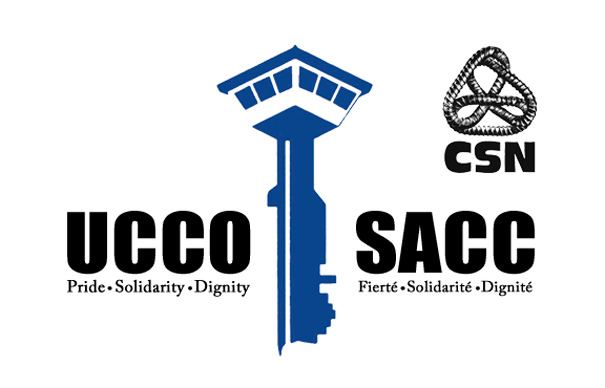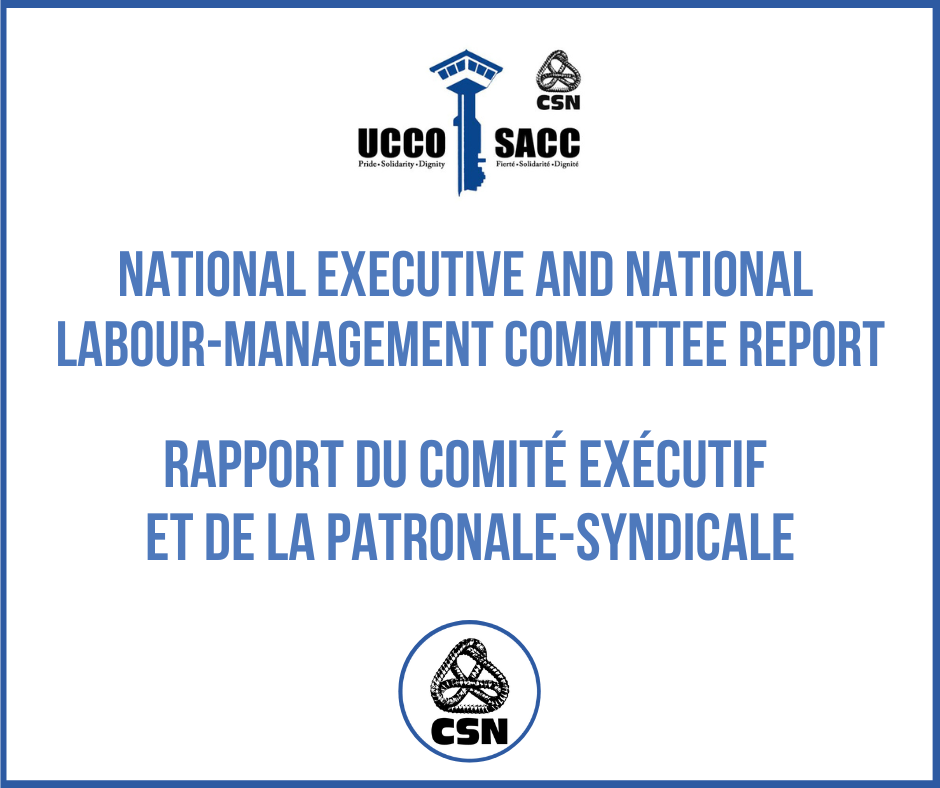Frisk Gloves
Recently, the employer released a memo indicating an interim procurement of frisk gloves. These new gloves, which meet current specifications, will be purchased to fill a gap while a new tender is prepared to procure needlestick-resistant gloves. While a supplier had won the last tender for needlestick-resistant gloves, its gloves failed both in-house testing and external CSC-commissioned testing; as a result, these gloves were unable to meet the technical criteria developed by the sub-committee at the time. Unfortunately, this is a time-consuming matter, but we must remain vigilant about this essential protection for our members.
Schedules
At a meeting with the Human Resources Department, the employer informed us of its intention to work on a new scheduling bulletin to reflect changes made to appendix K of our collective agreement. To ensure that the rules set out in this bulletin respect historic practices of building mutually agreed-upon schedules, we have requested to participate in its development. We also informed the employer that we were willing to work jointly on scheduling training. We added that following agreement on a process for building mutually agreeable schedules, training must be offered to our local scheduling committees. In addition, we are working hard to identify the employer’s representatives on the National Joint Scheduling Committee.
New OSR
In previous meetings, we asked CSC to modify our electronic observation statement reports so that only our surnames or badge numbers appear in them. Following consultation with Ministry of Justice lawyers and the employer’s Informatics Department, CSC decided to maintain current practice. We will continue to monitor this issue in case any incidents of external identification should occur.
Violence in the Workplace
We were informed that a meeting had been held in Ottawa in the past few weeks with the wardens of maximum-security institutions. According to the Commissioner, the purpose of the meeting was to find viable solutions to stop the cycle of violence that we face on a daily basis, especially in maximum-security institutions. Our security rounds, the quality of our searches, and inmate accountability were among the topics discussed at the meeting. Our managers must find solutions much more quickly and intervene on a case-by-case basis to address the behaviour of violent inmates. We call for speedy and concrete action on this issue. While danger is part of our daily lives, the increasing violence and assaults suffered by our members must be met with swift and firm condemnation and severe consequences. We have reminded the employer that its approach to the inmate population on this issue must not be limited to words in a letter – it must also be backed with action.
Other News
The Regional Treatment Centre in the Pacific Region will pilot a project to apply provincial regulations rather than the Commissioner’s Directive 843. This draft policy aims to ensure that the use of clinical seclusion, mechanical restraint, and involuntary treatment for acute agitation in RTCs is consistent with community standards. We will be monitoring this project closely with the local section and the Pacific Region.
The National Executive received a presentation on a new two-factor authentication method for all employees, which stems from a government mandate to enhance government-wide security. Each Correctional Officer will receive a personal token, similar to a USB key, to log in. Authentication will be requested at regular intervals to log into the computer network. Further information on this subject is expected shortly from local management. We are waiting to hear back from the employer on distribution as well as training for measuring our new dual-threat vest properly. We should have some news on this shortly.
In closing, we would like to thank each one of you for your work over the last few months, particularly during negotiations. Special thanks also go to all Executive Committee members of our local sections and regions for showing unwavering dedication in representing our members’ interests.

